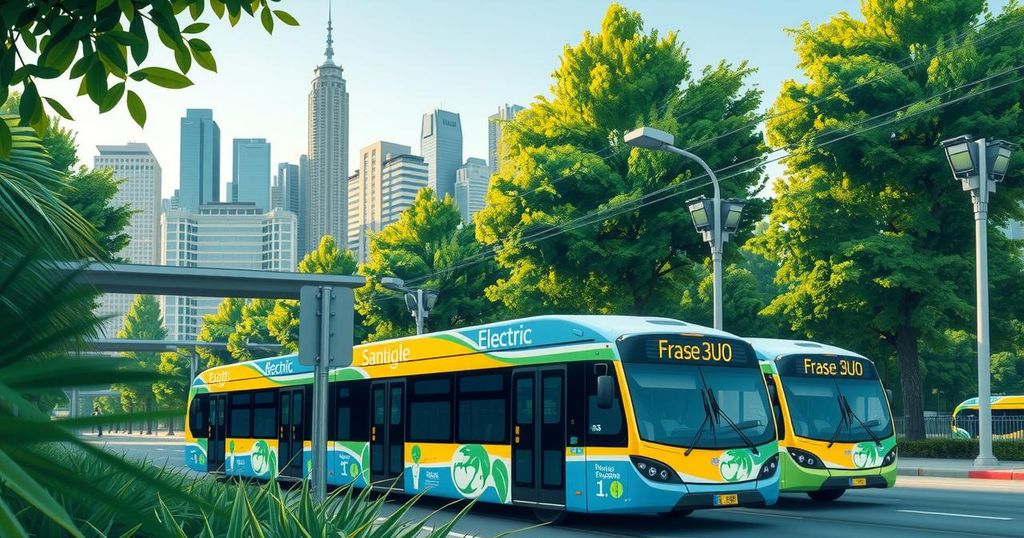Chinese Electric Buses Transform Santiago’s Urban Environment

Chinese-manufactured electric buses in Santiago, Chile, are significantly reducing CO2 emissions and noise pollution. The initiative reflects a commitment to sustainability in urban transit, with local authorities promoting the benefits and addressing needed infrastructure changes for effective implementation.
In Santiago, Chile, the introduction of Chinese-made electric buses has made significant headway in decreasing carbon dioxide emissions and improving urban air quality. These electric vehicles not only cut down on harmful gas outputs but also provide a quieter alternative to traditional buses, which adds to the overall urban environment’s livability. The positive impact of these buses is already becoming apparent in the daily lives of residents and commuters alike.
The city’s transportation authorities highlighted the importance of these buses in their efforts to create a more sustainable future. With noise pollution being a growing concern in urban settings, the switch to electric buses has been welcomed by many, as it fosters a more peaceful commuting experience. As cities around the world grapple with air quality issues, Santiago is beginning to set a precedent.
Furthermore, the deployment of this electric bus fleet reflects a broader trend toward embracing cleaner technology in public transport. As nations, particularly in Latin America, evaluate their transportation methods’ environmental impacts, Chile’s move to incorporate Chinese-built electric buses positions it as a leader in this transition. This shift is not just beneficial for the environment; it also aligns with global efforts to combat climate change.
Local government officials praised the collaboration with Chinese manufacturers in rolling out this eco-friendly initiative. They emphasized that the introduction of electric buses aligns with Chile’s commitment to reducing both carbon emissions and reliance on fossil fuels in public transportation. This progressive step could serve as a model for other cities seeking similar environmental advancements.
Despite the advantages, there are challenges that accompany this transition. Infrastructure adjustments are vital to support the new electric fleet, such as charging stations. Furthermore, ongoing maintenance and training are critical for ensuring these buses operate effectively and sustainably. Policymakers are aware of these needs and are working to address them as quickly as possible, aiming for a seamless integration into daily transit operations.
In summary, the introduction of Chinese-made electric buses in Santiago, Chile, is a significant move toward sustainability, aimed at reducing carbon emissions and improving air quality. This initiative not only showcases a shift towards cleaner technology but also sets an example for other urban areas. As challenges arise, city officials remain committed to adapting infrastructure to support this eco-friendly transition, marking an important step in addressing the global climate crisis.
Original Source: english.anhuinews.com




